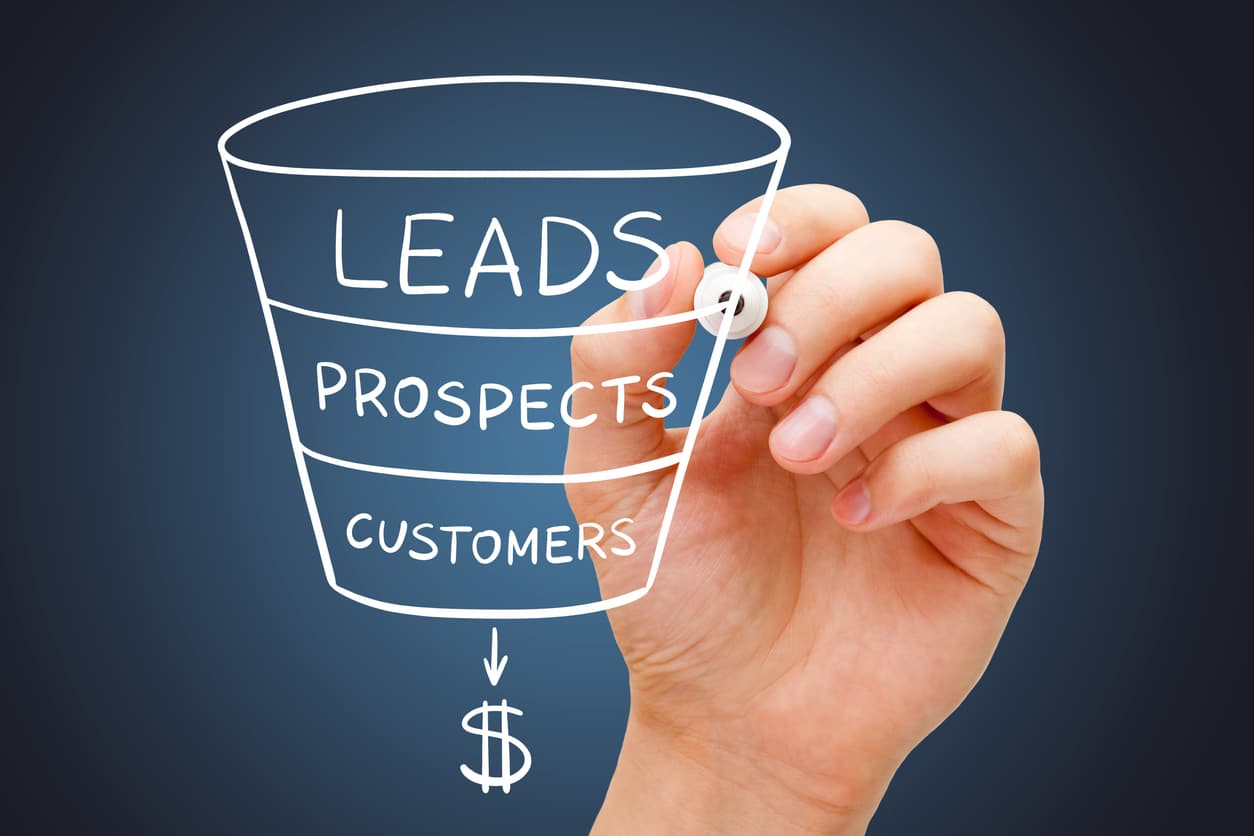For businesses, Q4 should be a time for both reflection and planning as you look ahead to the upcoming year:
- Reflection on what has been working for your business over the last year and what areas need improvement
- Planning for where you want to go over the next year and beyond
This planning and reflection should take place in all aspects of your operations, including your marketing. Annual marketing planning is truly essential, as it is one of the most important tools you can use to consistently grow your business over time.
Marketing trends evolve rapidly, and the strategies you’ve used over the last year or two may not necessarily be the best solutions to continue pushing your company forward in the future. Making annual marketing planning part of your regular Q4 operations rhythm will ensure your efforts don’t become stale. Instead, you’ll be taking a proactive and strategic approach that ensures you continue making the best use of your resources and are implementing the most effective strategies to deliver your desired outcome.
What Is Annual Marketing Planning?
Annual marketing planning is the process associated with setting the course for your marketing efforts to ensure they achieve your business’ growth goals. This overarching plan will establish your marketing goals for the upcoming year and create a roadmap to help your team achieve your desired outcome.
Think of your annual marketing plan as a blueprint that keeps your company focused on all established objectives, identifies the best opportunities to pursue, and establishes the budget necessary to achieve your goals. Without this plan, your marketing efforts can potentially become very messy – it’s hard to know whether you’re pursuing the best strategies, you may not have identified the correct metrics to determine if you’re getting your desired results, and you may struggle to establish the proper budget to maximize the return on your marketing.
Crafting a strong annual marketing plan will accomplish several important purposes for your business:
- Define your marketing objectives and ensure that they align with your company’s purpose, values and long-term vision
- Keep your business on a path of long-term growth
- Improve your market position and identify new opportunities to pursue that can help grow your customer base over the next year
- Increase your company’s brand awareness
- Identify how essential marketing tasks and responsibilities will be assigned to the different members of your team
- Establish metrics that will help you determine the success of your efforts and identify aspects of your plan that may need to be adjusted over time
Annual Marketing Planning Essentials – 5 Key Elements for a Successful Process
Annual marketing planning is a process. As with all processes, there are key elements that must be addressed in order to ensure your efforts are effective. The advice below will focus on these high-level key elements – in other words, the foundation on which your annual marketing plan is built. This is different than the steps necessary to execute your plan. But without focusing on the following key elements, you won’t have the proper infrastructure in place to execute the steps associated with implementing your plan.
Clearly Define Your Coming Year’s Organizational Business Goals

- Target revenue goals to shoot for over a multi-year period (these goals should increase each year)
- Potential new products or services to provide over time
- Additions to your team necessary to reach your goals as your business scales up over time
While this long-range vision is crucial, it can also be daunting if you don’t break it down into smaller, more achievable stages. Each year, you should set specific organizational business goals that will help you incrementally move along the path to achieving your company’s long-term vision. In other words, you need to identify where the company is trying to go in the next year. This will help guide the marketing efforts necessary to get you there.
While your marketing team leads will be involved in this process, your executive team must drive the establishment of these annual business goals. Make sure you’re identifying big picture goals that will help move your business forward towards achieving your long-range vision.
Model Potential Marketing Strategies with ROI Projections
Once you’ve defined your company’s business goals for the upcoming year, it’s time to start evaluating potential marketing strategies to implement. It’s crucial that this evaluation is data driven. Simply choosing the hottest new marketing trend and hoping it pays dividends for your business is not likely to yield the outcome you desire.
Start by looking at your previous year’s marketing data to determine which strategies were most successful in the past. We recommend that you evaluate data for just about every aspect of your marketing efforts. This may include:
- Online paid ads
- Trade shows
- Referral partnerships
- Existing client growth
- SEO
- Tactical content marketing
- Targeted social media engagement
When evaluating these strategies, look at your funnel data points to understand how each strategy creates returns. This is the most effective way to generate accurate ROI projections for the strategies you’re considering. For example, you can evaluate the following metrics to determine the ROI you received on your online paid ads:
Impressions for the spend – How many targeted people will see your ad. This information can be acquired with research.
- Click-through rates – How many targeted people will click your ad and visit your landing page. You can get this information from your historic data.
- Landing page conversion rates – How many conversions (both from phone calls and contact form submissions) you’ll expect to receive from your landing page. This can be determined from industry averages.
- Qualified leads – How many leads you can expect to receive that meet your criteria for becoming a quality new client/customer. This information can be acquired from historic data in your ERP.
- Lead closing rate – The percentage of leads you can expect your sales team to close. This is also contained in your ERP historic data.
- Average new client sale – How much you can expect to make on each sale. Your accounting system will contain this information.
- Average new client value – How much revenue you can expect to generate over time from each new client. This is also found in your accounting system.
By evaluating these comprehensive metrics, you’re able to develop a clearer understanding of how effective each strategy has been in the past. This should drive your decision making for the marketing strategies you choose moving forward. Keep in mind that this data should also be viewed in the context of how the latest marketing trends are impacting the success of each strategy.
Select Your Essential Strategies
Now that you have ROI projections for each strategy, it’s time to pick the best ones to achieve your goals. When selecting marketing strategies, there is one point that can’t be stressed enough – don’t try to do everything.
While it may be tempting to throw the kitchen sink at your marketing efforts, this will ultimately result in spreading yourself too thin, and your overall marketing results will most likely suffer. Instead, do the essential things you need to do, and do them well. We recommend focusing on 2-4 critical channels. This will deliver much better results than trying to tackle every possible marketing strategy at your disposal.
The data you compiled is crucial to selecting the proper strategies. Using your model, choose the strategies that deliver the best ROI, and do them well.
Outline Your Performance Intelligence System Needs

There is a hierarchy governing the relationship between data, information, and intelligence:
- Data – This refers to individual numbers, called data points. They can come from a variety of events such as website actions, customer actions, customer feedback, CRM interactions, an internal survey and many other sources. Tools such as Google Analytics provide these data points.
- Information – This refers to the smart, intentional arrangement of multiple data points to provide your predetermined, most critical insights quickly and accurately.
- Intelligence – This refers to the ability to acquire and apply knowledge (from information) and skills to continuously improve your outcomes and performance.
Keep these keys in mind when acquiring performance intelligence:
- Determine the critical information needed to evaluate performance at each stage of your organizational intelligence growth – This should occur in phases, based on the degree of impact the intelligence can have on your organization. Once you’ve dialed in your upper tier key measures, you can begin fine tuning and creating intelligence subsets.
- Avoid data overload and diminished results – You can only improve performance when the information you acquire is actionable for improvement. Many organizations waste enormous resources to collect, review and discuss data that isn’t relevant to the actions being taken. It’s crucial that you avoid this at all costs and simply focus on the data specific to the actions you’re taking.
- Create an effective system for conveying this information – You need to determine how to best organize and view all the data points to provide clear information that will enable you to make intelligent decisions.
Define the Budget Needed to Achieve Your Organizational Business Goals
Establishing a budget for your marketing initiatives is a crucial component to the annual planning process. You’ll need to know how much these strategies will cost in order to achieve your desired results and maximize your ROI.

The key is to let your performance intelligence dictate your budget instead of having your accounting team tell you, “Here is the money you have to spend on marketing this year.” If your budget it dictated by your accountant, you run the risk that your expenditure will fall short of what is needed to achieve your organizational business goals.
Therefore, it’s crucial that you approach this process as a strategic leader and say to your team, “Here are the goals, here are the essential things we need to do, and this is the budget needed to achieve our goals.” Your ROI projections and performance intelligence data should be able to provide the justification you need for your budget requests.
Putting Your Plan into Motion
When it comes to annual marketing planning, knowledge is power. This can’t be stressed enough. Without the proper data and performance intelligence, you won’t have the ability to confidently identify the best approach to maximize your marketing ROI for the upcoming year.
Therefore, it’s crucial that you take the time to get these aspects of the process dialed in before you start annual planning. Meet with your marketing team several months in advance in order to ensure they know what data you will need, and make sure they are creating the performance intelligence systems necessary to properly create the ROI projections you need. This way, you’re ready to hit the ground running once you’ve established your business goals for the coming year.
This process can be overwhelming the first few times you attempt annual planning, but the end results are well worth the effort. This will help you align your marketing strategies with your business goals in order to move your business forward. If you feel like you’d benefit from expert guidance, Webolutions can help.
Webolutions has been Denver’s leading digital marketing agency since 1994. We’ve seen the digital marketing industry evolve from its infancy, and we understand what it takes to identify the strategies necessary to achieve your marketing goals.
We’re the only strategic agency in the United States delivering a transformational Power of You Platform™ to grow your business faster, smarter and easier. This platform provides you with a collaborative, expert-led journey to identify what is special about you as a company in order to position you as an industry leader.
As part of our Power of You Platform™, we will guide you through the annual planning process in order to identify and implement the most effective strategies necessary to achieve your goals. Our team will set up the data analysis tools necessary to provide the information you need, and our real-time performance intelligence dashboards will deliver the actionable insights you need in an easy to understand format.
Our strategic marketing team has extensive experience conducting annual planning with our clients, and we can guide you through the process every step of the way. You’ll come out of annual planning with a clear vision and direction for the upcoming year, and you’ll be armed with the proper strategies necessary to get to where you’re looking to go.
Contact us today to schedule a free consultation. Webolutions serves clients nationwide from our offices in Denver, Colorado.


 Impressions for the spend – How many targeted people will see your ad. This information can be acquired with research.
Impressions for the spend – How many targeted people will see your ad. This information can be acquired with research.